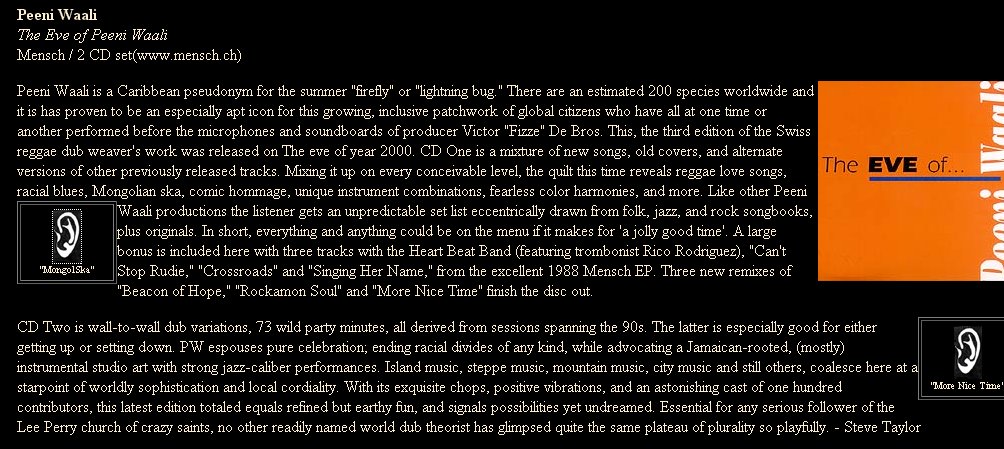Swiss hackbretts and the Persian santur combine on this 1999 production and the results do equal the self-ascribed tag “imaginary folkmusic”, but with rock-chamber jazz sonorities not yet encountered elsewhere in the emerging idiom. The ten 5 to 6 minute excursions all penned by Alp denizen Schiltknecht are bound with a prolog and epilog by alphornist Roland Dahinden, whose resonant and authentic air charges the dulcimers with high mountain flavor. Electric bass and drums modernize what would otherwise be some austere and lovely acoustic playing that straddles the new folk recital/improv line. Tracks with a rhythm section are carried with a single groove strategy that yields expansive travel textures when Schiltknecht & the classically trained, Iranian refugee Kushan extemporize over top. Further dimension is added with violin and cello and occasional wordless vocals. Much of the music here has a minor key basis, importantly enriched by a large acoustic stage. Friendlier than comparable nordic jazz, thanks to a few major key melodies and waltz meters, this is not quite the traditional/alternative folk of the Northside label either. Schiltknecht reveals that “Tunsch” is an old alpine expression for a human-like puppet or artificial humanoid, created by shepherds. However, according to legend, at the end of the alpseason when the shepherds depart leaving the Tunsch alone, the lonely effigy exacts horrible revenge on them. Which would explain the small exhibition of somewhat menacing, primitivistic charcoal drawings which accompany the attractive black & white booklet. More lore appears in an ancient alpine (originally Sicilian) cultural utterance chanted in “Sator Formula” which purportedly wards off evil, fire, drought and other natural calamities. Tunsch is a handsome, impressionistic album of contemporary music making intuitively informed by myth and the purity of folklife yet escapes typing or direct comparison with any similar developments in Europe. Quite a find from rural and unexpectedly urbane back country.
-Steve Taylor


